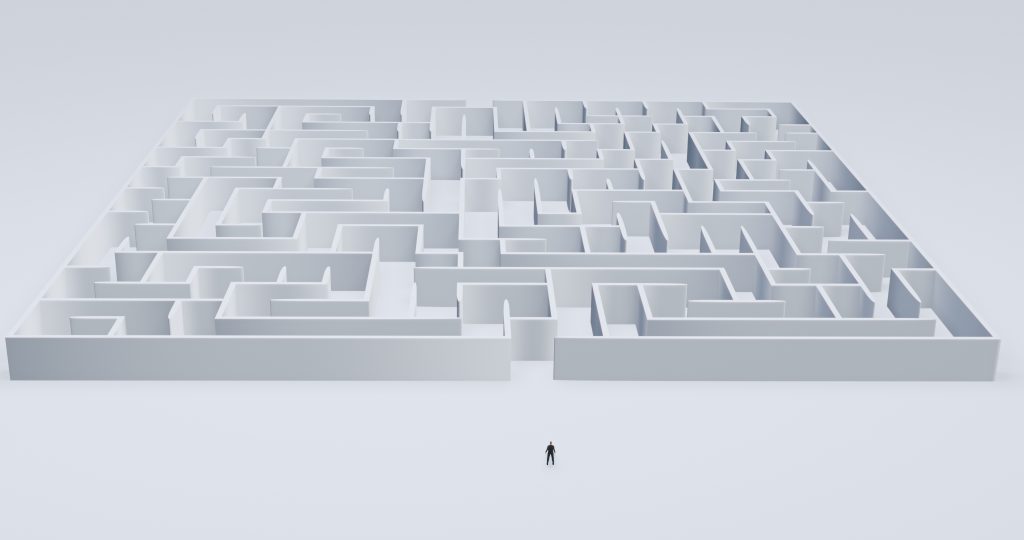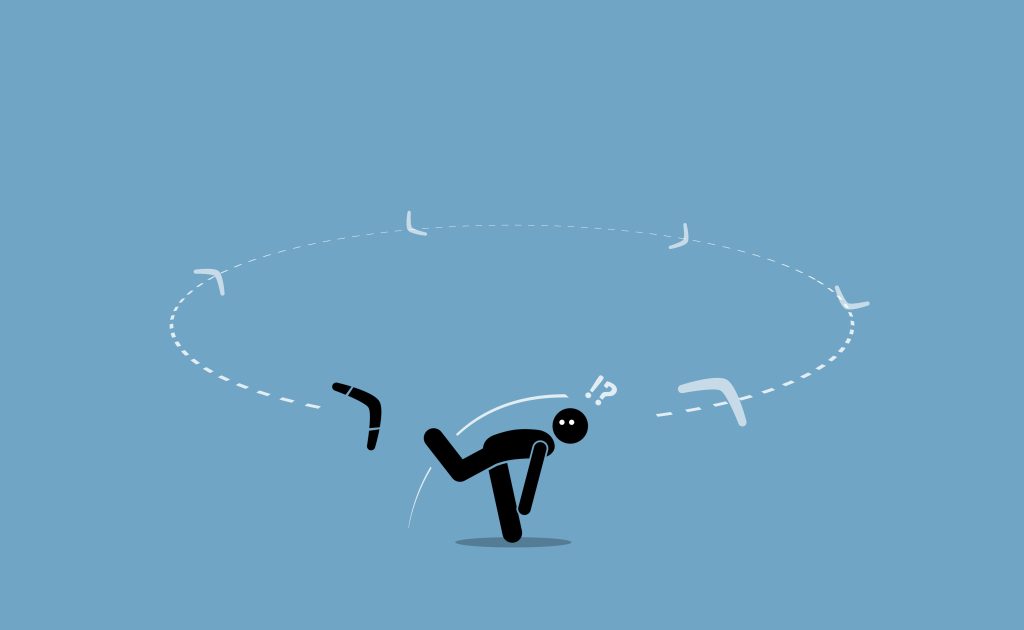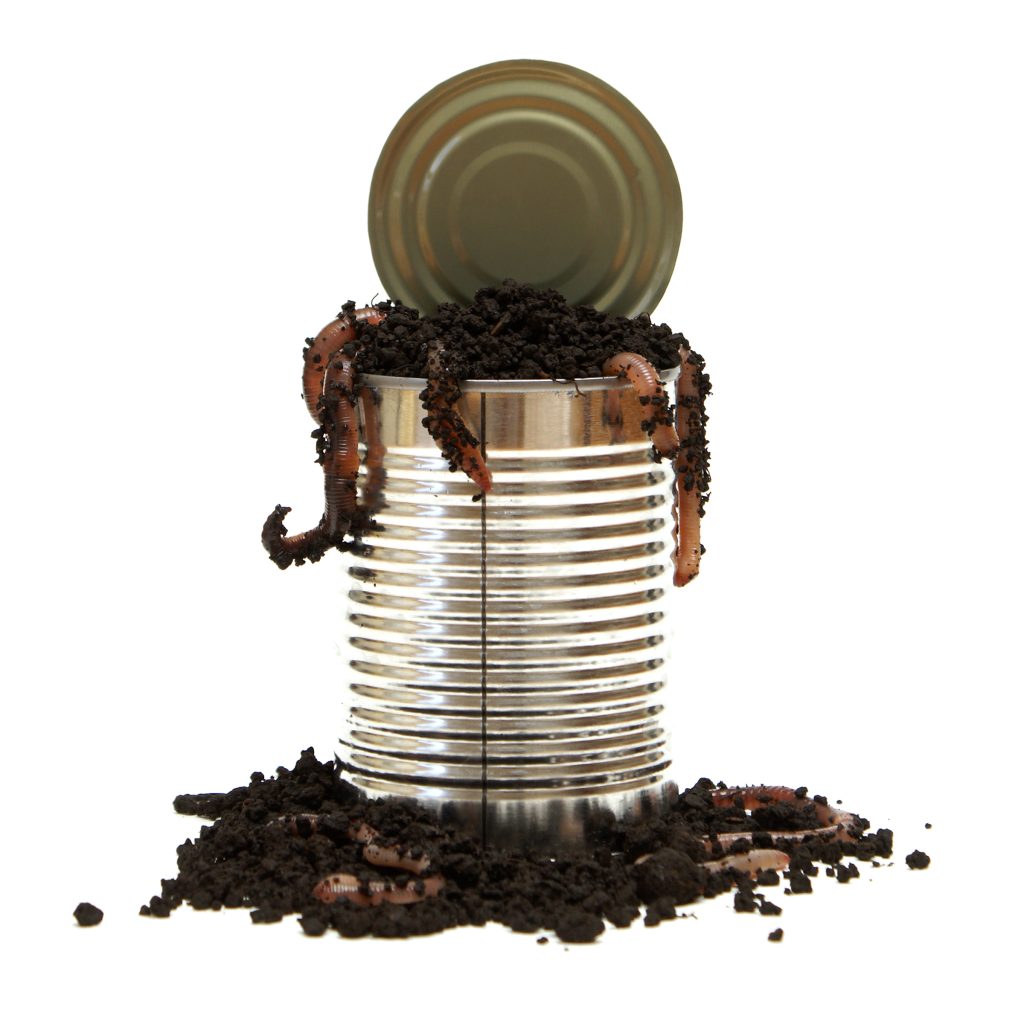2024: Praying Farewell to the Pandemic Boomerang
In mid-March 2020, I received a text from a public relations industry friend and colleague in London, grimly predicting that the then-emerging COVID-19 pandemic was going to be – in his word – “existential.”
At that time, the pandemic’s acceleration certainly was alarming, particularly in the UK, which was several weeks ahead of the United States, where I live, in its full landfall.
But something about his word choice of “existential” alarmed me at a deeper level. He himself was not alarmist by nature. Nonetheless, I considered him to be a prescient leader… ahead of his time on many issues.
Everyone already knew the virus could be deadly to people of wide-ranging demographics.
Also clear: businesses, organizations, and institutions faced dire economic consequences, particularly since most nations’ massive government-aid packages were only just being conceived and hadn’t kicked in yet.
It was from this context that I primarily interpreted his “existential” fears.
After all, my friend then led the largest PR professional association in the world. As was reported in spring 2020 in the trade press, his organization was already absorbing serious and immediate pandemic pressures of its own, which, ultimately, his leadership in 2020 saw through to a successful outcome.
Sadly, though, three years later — nearly to the day, in mid-March 2023 — my friend who issued this “existential” warning to me… was dead, at age 47.
Did he die from the pandemic?
Well, not according to his official cause of death, which read, “(a) Decompensated liver disease and alcoholic hepatitis, (b) Chronic alcoholism.”
No mention of COVID-19.
But… Did the pandemic play a role? Directly? Indirectly?
It’s these lingering questions that I struggled for the remainder of 2023 to process.
After all, when anyone dies senselessly, those left behind cannot help but question why — going to the root-cause of it all. Mere death certificates aren’t sufficient or satisfactory explanations when they don’t come close to telling the whole story.
With regard to my late friend, it’s been difficult for me not to isolate the pandemic as at least one contributing root-cause factor, in the category of emotional and mental distress that compounded other issues.
And those “other issues” certainly included – and still include, but are not limited to – a lack of societal knowledge, sophistication, practicality, and empathy about mental wellness in general. There are, too, the stubbornly persistent stigmas that work directly against good people who need to seek good help… but find themselves blocked and cornered, in a sense.
Part of the trap:
We have mental health and medical rehabilitation systems in many of the most advanced countries in the world (including the US and UK) resembling all-out labyrinths to navigate.

Even accessing a clear point of entry (presuming one exists) can be a nightmare of auto-attendants, unreturned phone calls, anonymized e-mails to info@ addresses, and other impersonal disjointedness and indignities… which silently scream loud-and-clear the dearth of a customer-service ethic for a buyer’s journey that couldn’t be more painful, personal, or even desperate before it has even commenced.
To be blunt, if someone is in the throes of their own existential crisis and time is of the essence to secure competent help before a fatality occurs, waiting around for weeks or even months within glacially paced intake and assessment queues can be deadly.
If you don’t believe me, I would invite you simply to ask my friend for his experiential testimony. But — of course — you can’t, given he’s dead, under precisely the circumstance I’ve just described — at the risk of putting too fine a point on my point.
On top of dysfunctional logistics, there’s the angst for people in major, high-visibility leadership roles.
For them – whose every decision, every action, and every word (including every social media post, as it were) is under constant, unforgiving, vocal scrutiny… whether fairly or unfairly – the pressures not to seek mental wellness help are all the greater. The more dire the crisis, the greater the pressure looms not to seek help.
After all, isn’t getting help a clear sign of… weakness?… ineptitude?… “damaged goods”?… meriting one potentially being relegated to the scrapheap of lifelong unemployability?
Valid confidentiality concerns and fears of being “outed” for the perceived crime of seeking help only contribute to these anxieties, serving as little more than a fast exit-ramp to the hinterlands of a persistently untreated condition… or, worse.
These realities precisely compose the conflicting and utterly destructive roadblocks that those in leadership ranks dealt with during the pandemic. So many people in this segment of the population needed help, but they felt trapped by their own success not to seek it. Many still feel trapped, today.
With 2024 now dawning, we continue dealing with this situation, perhaps even more so, since addressing pandemic-related distress has begun falling out of fashion. After all, everything is supposed to be back to “normal” now, right?
<pause>…
Right??
So, please allow me to modify my answer to my own earlier question.
Did my friend die from the pandemic?
In part and indirectly, the answer is an unequivocal “yes.” Had the pandemic never occurred, so many factors would have been different for his life and for how his health situation unfolded.
But the “factors” I’m referring to aren’t ones you’ll likely read about in most medical journals or hear discussed in an open, authentic way within leadership circles of most industries. They certainly aren’t factors you’ll read about in resulting obituaries or even see documented on death certificates for the public record.
By January of this past year (2023), I think most folks viewed the pandemic as a rear-view mirror thing. Onward and upward!
But no.
As it turned out, it seems the 24 months of 2022-2023 composed the pandemic’s silent-but-deadly era.
In short, it’s what I’ll call the Pandemic Boomerang.

As admittedly a non-clinician, I define the Pandemic Boomerang as the delayed, cumulative effects from emotional / mental trauma and grief unleashed in 2020-2021, resulting in very real medical health consequences, under largely absent, malfunctioning, or purposely disabled pressure-release valves in the lives of far too many people (like my friend who died).
In most cases, the Boomerang took flight when people threw out, with a flick of their wrists, their own unaddressed and neglected self-care, in full “Onward and upward!” modality, peddled by the demanding expectations of herd-like business culture.
As their personal Boomerang spun out of sight, it scooped up all the underlying conflict and pain of even distant-past experiences. It circled back around, as boomerangs do – menacingly – in radii often imperceptibly wide-ranging, while their human targets gazed in the polar-opposite direction of its hurdling return-path… sitting ducks.
To this day, countless people are still metaphorically getting smacked in the back of their heads with this virtual object that they thought they cast off several years ago, if indeed they recall it at all, in a sort of dissociation.
By the time the Pandemic Boomerang hits them, most people have no idea what it is; where it came from; how precisely it’s harming them and disrupting their lives; or why it’s important to acknowledge and actually deal with it.
In short, they’re blindsided.
The Boomerang’s unpleasantness looks very different for different people… so different, in fact, that it would be impossible to describe all of its various symptoms and manifestations.
However, if one word could best describe the universal conundrum faced by those in the Boomerang’s path, it’s this:
Coping.
How are people coping with all the messes that were made of life from the pandemic, its aftermath, and the rather sinister tentacles of its reach?
Are they coping in positive, healthy, restorative ways?
Or, are they coping negatively, self-destructively, and in disordered, uncontrolled patterns tied to drinking, eating, using or over-using other substances, self-isolating, or any range of other behaviors tied to self-care and preservation?
Is “coping well” going to be the same in 2024 as it would have been judged in 2022? Or in 2020?
Further, if one’s life included distant-past trauma well pre-dating COVID (as in, even decades past), what does effective “coping” look like, if dredging up past adverse life experiences is part of the Boomerang’s typical collision-course with oneself?
I ask that particular question, because it seemed the pandemic in 2020 newly opened up old cans of worms, so to speak, for a vast range of people.
These worm cans had earlier existed safely out of reach, mostly out of mind, perched high-up on the dusty shelves of people’s closed-door mental utility closets.

But amid the stresses and strains of surviving 2020 and then 2021, these previously contained creepy-crawlies popped out of their confinements and dispersed themselves… absolutely everywhere, spreading all their residual slug-like trails of slimy filth with them, and leaving their unsuspecting landlords to deal with the mess. No security deposit, to boot.
Some people may not know what on earth I’m talking about, here.
Perhaps for the lucky, the pandemic was simply one, weird, lousy, big, inconvenient blip on the radar screen of life.
Yes, there was a tragic loss of other people’s lives directly from the virus, which certainly is acknowledged with respectful sadness, but, apart from some inconvenient home-bound movement and travel restrictions, nothing in the life-altering realm ever hit too close to home for them. It’s all now done-and-dusted.
To these people, I can only say… I’m so happy for you. Because I truly am.
If you haven’t experienced the Pandemic Boomerang… or haven’t seen it experienced by others you care about, to their great detriment or even death… then you are blessed.
Speaking for myself, what I’ve seen rendered to many people’s lives has ranged from “concerning” to “irreversibly tragic.”
If nothing else, I hope what I’m sharing now are words of awareness, caution, and a plea for human empathy.
2024 is here… and not everyone is OK.
We cannot wish away the Pandemic Boomerang. I’m too realistic and too practical to pretend it doesn’t exist. I can still see the havoc it’s wreaking among friends and colleagues. While I’m not trying to stoke anticipatory anxiety out there for those who have been fortunate enough not to experience it, I urge all of us not to be caught so unawares.
Let’s no longer allow ourselves to get smacked in the back of our heads, having had no foreknowledge this thing existed.
Let’s also understand our responsibility to others, in warning them when we know the Boomerang is fast approaching, or certainly when we know it’s already struck someone we care about.
Most of all, let’s allow everyone — including the leaders of our organizations and societies upon whom certain pressures are placed to be superhuman — simply to be… human.
Coping today – in the wake of how the pandemic harmed and literally killed people and otherwise upended lives – requires courage to face down those pre-pandemic societal norms, constructs, and biases that stubbornly persist in our post-pandemic world.
We should work to change those previous norms to a new normality.
In 2024, let’s rethink what “coping well” means and what it requires — including what critical access to resources should include for people from all walks of life.
Whether we wish to acknowledge it or not, coping — in positive, healthy, restorative ways… and not the other way — can be existential.

Brilliant thought piece MB. Thank you for sharing. I’m so sorry about your friend.
Thank you so much, Heather. Dealing with grief is a complicated thing. I know that he would have wanted positive change in service to helping others to result from this painful episode. Thank you for commenting… Xx
Excellent reflection. Two of my friends completed suicide within one month of the beginning of the pandemic stateside. The effects are wide reaching and everlasting. Recently I came across research that connects an acceleration of dementia for some people with who had COVID (perhaps brain fog is related?) When my children (now young adults) are in panic mode, I remind them that they have experienced something similar to the Great Depression- and the effects of it will remain with them for the rest of their lives, much like it did with my grandparents.
Hi Anna — I’m so terribly sorry about the loss of your friends. What tragedies to have occurred.
You are so correct about the depth of the harm and the hurt. To your point about dementia, both in COVID cases and with the effects of liver disease, those issues are very real. It’s insidious, in that not only does the victim often not realize what’s going on mentally and what’s happening to them, but people they interact with can be left similarly confounded by the behaviors and actions they encounter by colleagues and loved ones grappling with it.
Watching someone you care about suffer — but being powerless in so many ways to help until death finally claims its victim — carries with it its own shockwaves and life-long grief, as you said. I feel like I have better empathy for others now who struggle, but I certainly regret how I came to acquire this knowledge. Thank you so much for sharing your experience and for your empathy as well as insights. Much appreciated.